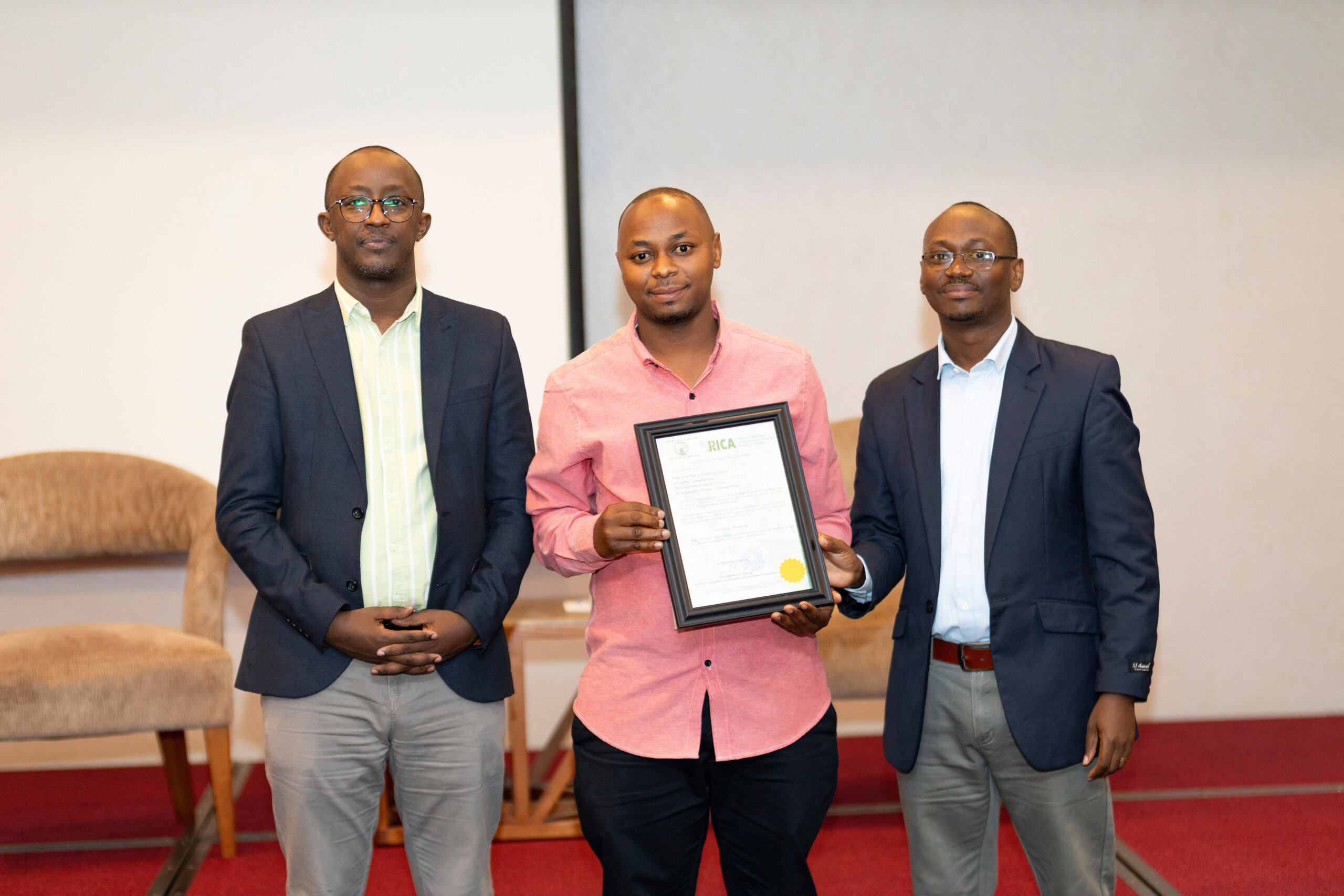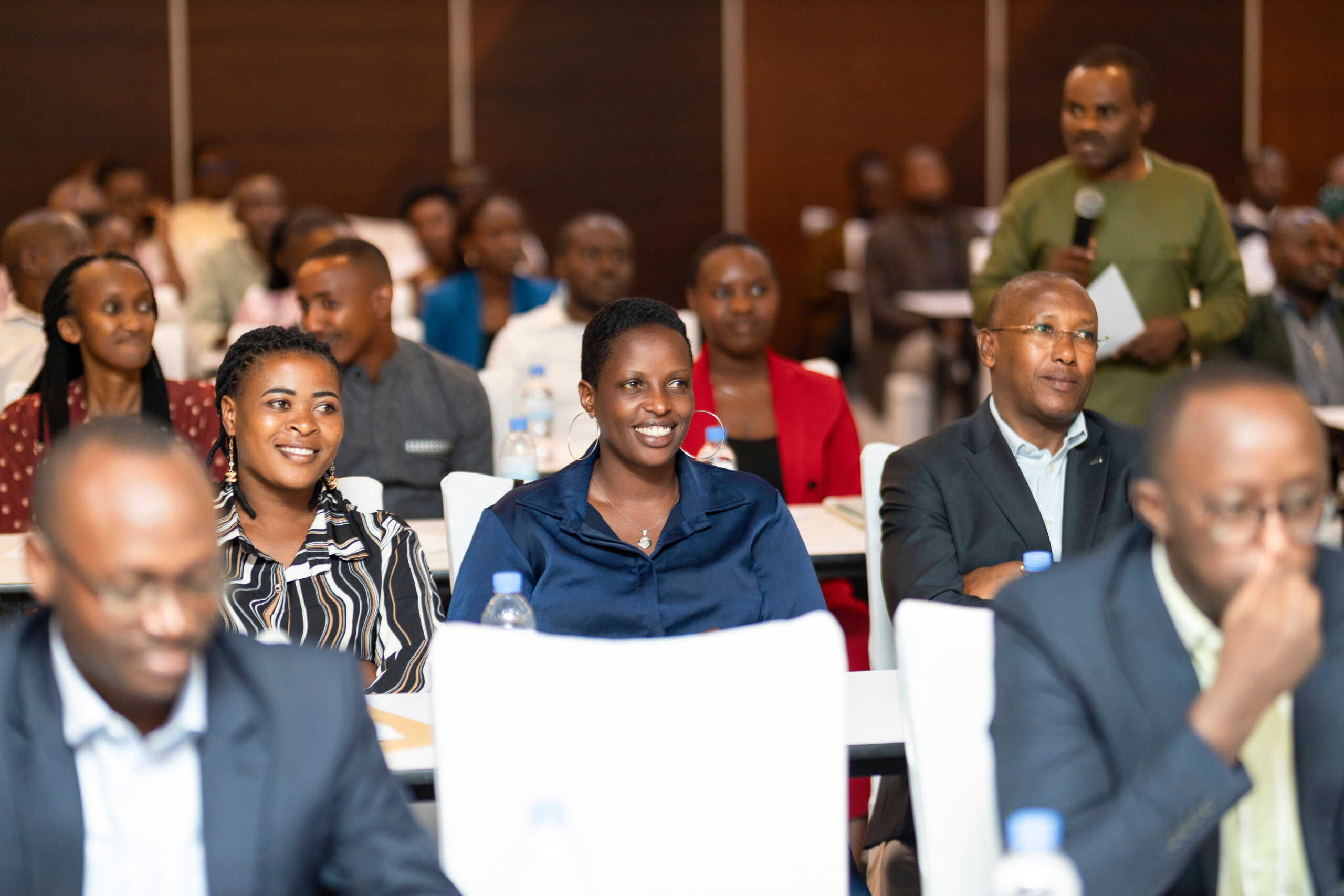When 29-year-old veterinary graduate Ernest Ngabonziza completed his six-month training as a private meat inspector (PMI) in June 2025, he walked away with a certificate and a vision for both sustainable employment and a chance to build something bigger in his life.
Prior to this, he was practicing as a veterinary officer for seven years but was equipped only with general knowledge in animal health. Post-graduation, not only does he now have extra and specialised skills in meat safety, but he has also seen a window of opportunity in entrepreneurship.
“My wish is to start a large slaughterhouse in my home district of Rwamagana where there is none, currently. I know the standards needed to properly run an abattoir. If I can set it up, I will create work for myself and for other meat inspectors, farmers, butchers.”
He plans to work hard and raise the necessary equity or collateral to acquire a bank loan, while fine-tuning the project. He hopes to have the slaughterhouse up and running in about two years.
Ngabonziza is one of 35 newly certified private meat inspectors trained under the Value-Added Initiative to Boost Employment (VIBE), implemented in Rwanda by TradeMark Africa in partnership with the International Trade Centre (ITC), Mastercard Foundation, and other local partners such as the Rwanda Inspectorate, Competition and Consumer Protection Authority (RICA). The initiative is designed to create dignified jobs for women and youth in micro, small, and medium-sized enterprises (MSMEs) in the horticulture, poultry, meat, and dairy value chains and is equipping veterinarians, such as Ngabonziza with practical skills to catalyse opportunities in Rwanda’s growing meat sector.
This is the second cohort that brings the total number of trained PMIs under the programme to 72, still a fraction of what the country needs. With more than 250 slaughterhouses nationwide and meat production projected to rise from 1 million tonnes in 2024 to 1.3 million tonnes by 2029, according to the Ministry of Finance and Economic Planning, demand for certified professionals in the sector is growing rapidly. The programme aligns with Rwanda’s development goals under the National Strategy for Transformation (NST2), which targets the creation of 250,000 jobs annually by 2029. By building technical capacity in sectors such as agriculture and food processing, the government envisions the expansion of GDP per capita from $1,040 in 2023 to $1,369 by 2029.

Ernest Ngabonziza (centre) receives a certificate during the graduation ceremony for private meat inspectors in Kigali on 27 June 2025. On the right is Robert Mugisha, Director of the Registration and Licensing Unit at the Rwanda Inspectorate, Competition and Consumer Protection Authority (RICA), and on the left is David Butera, TradeMark Africa Rwanda Programme Manager.
For Ngabonziza and his peers, the training has also challenged them think like entrepreneurs. “Our role is not just restricted to inspecting meat. We are also about creating a system where farmers have access to a reliable market, where hygiene standards are met, and where young people like me can run businesses that make a difference.”
Annick Dusengimana, another PMI graduate, is already applying her skills at a slaughterhouse in Nyanza District. Before the PMI training, she practiced as a veterinarian, though her income was unstable. “Before this, I worked as a veterinary officer in Huye District. This certification gives me more confidence and better prospects. Every vet graduate should get this training as it is practical and provides one with a clear path to employment.”
While she is currently employed at the slaughterhouse in Nyanza, Dusengimana’s long-term plan is to start her own business in the meat supply chain. Rwanda’s meat sector is facing both opportunities and challenges. As tourism and hospitality grow—fuelled by the country’s Meetings, Incentives, Conferences and Exhibitions (MICE) subsector—demand for high-quality meat is growing. Tourism revenue is projected to rise from $620 million in 2023/24 to $1.1 billion by 2028/29, with MICE alone expected to contribute $224 million, more than double its current value, according to government projections outlined in the NST2.
For restaurants and hotels catering to international visitors, meeting global food safety standards is no longer optional. This highlights the need to shift from traditional slaughtering methods and reliance on trained professionals with an understanding of hygiene protocols and modern inspection methods.
“One of the objectives of the National Strategy for Transformation is to guarantee food security and ensure compliance with food safety standards for both local and export markets,” said Robert Mugisha, Director of the Registration and Licensing Unit at RICA. “Meat is a widely consumed product, but it is also highly perishable. Without proper handling and inspection, it quickly turns into a public health risk.”
Mugisha points out that globally, more than $900 million is spent every year treating diseases linked to contaminated meat—an avoidable cost that underscores the value of prevention through professional oversight.
For meat suppliers, the shift to professional meat inspection is already creating impact. François Kimonyo, who runs Rugano Meat Supply in Gasabo District, has worked with both veterinarians and private meat inspectors. “Veterinarians are skilled, no doubt. But meat inspectors are trained to follow international standards. They observe every detail—before, during, and after slaughter ensuring diners consume safe meat,” he explains.
Kimonyo believes the system only works if more inspectors are trained and spread across the country. “We need one in every slaughterhouse. It is the only way to build trust and meet market expectations.”
“While the certification of 35 new private meat inspectors is a welcome development, it is just the beginning. Rwanda still faces a gap in coverage and must continue investing in skills development and private sector partnerships to meet future demand,” notes David Butera, Programme Manager, TradeMark Africa.















